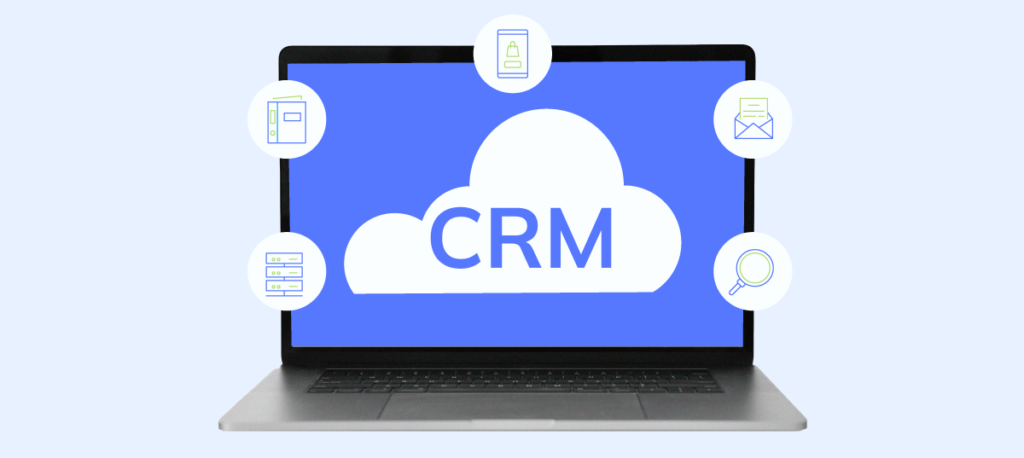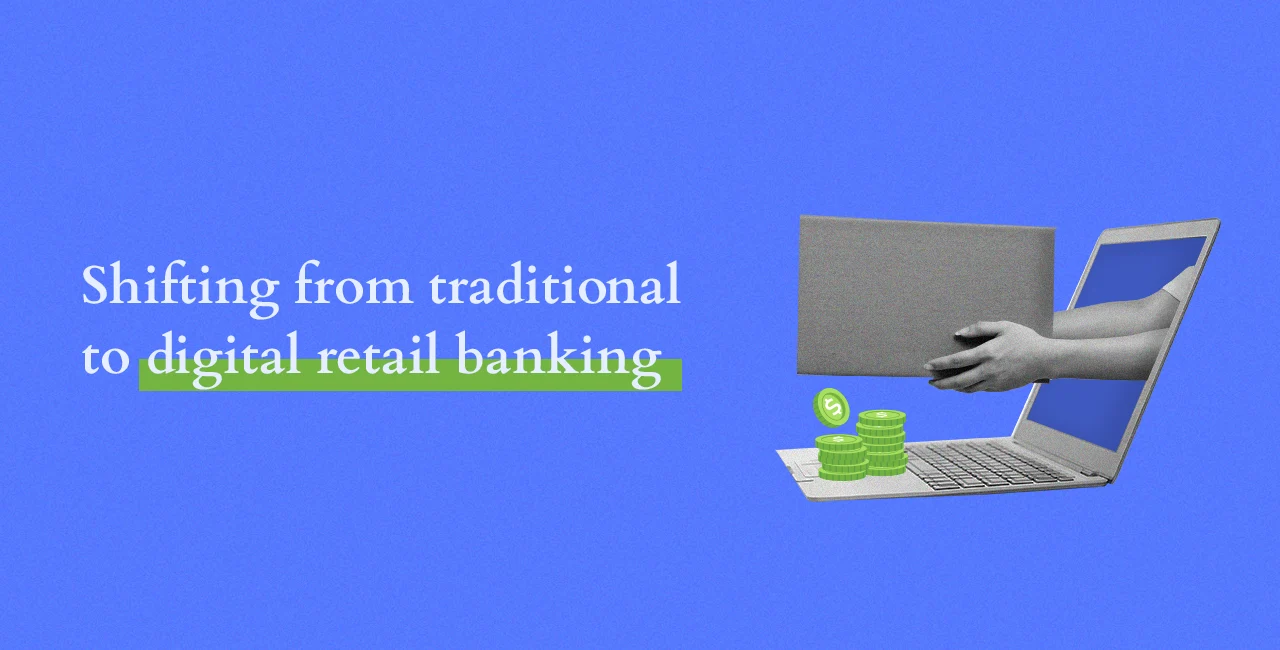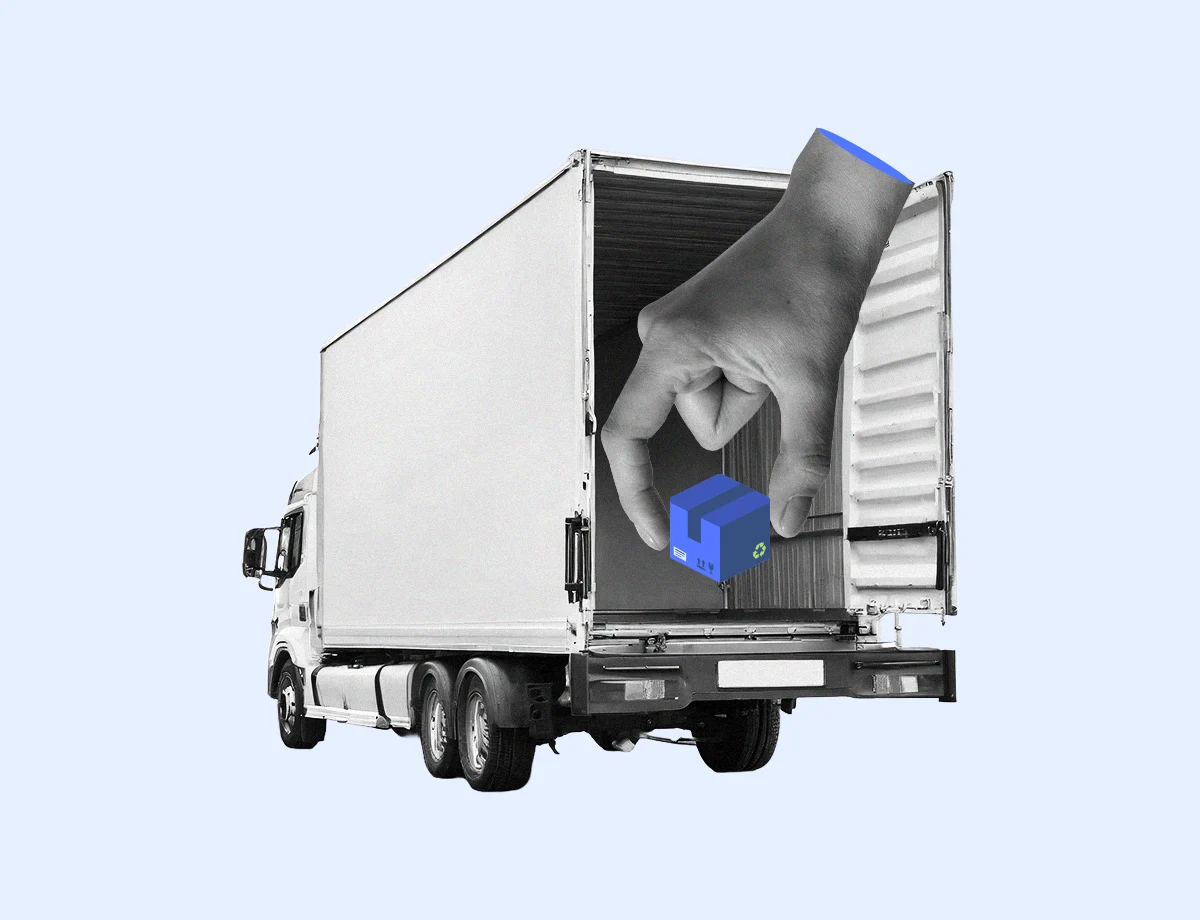The retail landscape has shifted from traditional methods to a digital-centric model, influenced by advancements in retail banking services.
Redefining Retail: The Shift from Traditional to Digital
The retail sector has shifted to a digital-centric approach, significantly influenced by the evolution of banking services.

Traditional vs. Digital Retail: A Comparative Analysis
Traditional retail transactions were predominantly conducted in physical stores, with consumers paying in cash or via debit and credit cards. Banks played a more background role, offering essential services like checking accounts, savings accounts, and deposit accounts.
Digital-age retail has changed this dynamic, with banks evolving to offer more seamless transaction solutions that impact how consumers shop and pay.
Emerging Needs and Opportunities in Digital Retail
With the digital shift, new needs have emerged. Banks are adapting by expanding their portfolios to include a range of digital financial offerings.
As consumers continue to adopt digital platforms for shopping, the demand for efficient and secure financial services increases. Retail banking services are evolving to meet these demands.
Merging Traditional Commerce with Digital Innovations: The New Retail Model
The retail landscape is witnessing a revolutionary integration of digital elements into traditional brick-and-mortar settings. This hybrid model exemplifies how banks are part of reshaping the consumer experience, blurring the lines between in-person shopping and digital convenience.
Retail banks now offer a more diverse range of products that support both businesses and consumers in their financial transactions.
Digital Integration in Physical Retail Spaces
Today, physical retail stores are not just spaces for browsing products but are becoming hubs for digital engagement. For instance, in-store kiosks are becoming increasingly popular in stores, allowing customers to check product availability, compare prices, or even make payments.

QR Code Shopping: The Future of Retail Banking and Commerce
Integrating QR code-based shopping demonstrates the evolving role of digital payment methods in retail. Customers can scan product codes, access information, and complete purchases directly.
This innovation leverages the capabilities of any commercial bank to offer retail banking services beyond basic transactions. It illustrates how banking is evolving, making finance more accessible and integrated into everyday shopping experiences.

Retail Banking Evolution: Consumer Needs and Market Demands
With digital platforms reshaping retail operations, businesses must adapt to integrate modern financial services into their models.
Enhancing Customer Interactions with Digital Payment Systems
Digital payment systems are an integral part of the retail experience, allowing customers to make purchases using a range of payment methods.
Banks have been pivotal in providing secure and efficient payment solutions that cater to customers’ evolving needs. With just a tap or a scan, transactions are completed instantly, reflecting the funds from one bank account to another.
Comprehensive Retail Banking Services: Beyond Basic Offerings
Retail banks have evolved from offering basic services, such as savings and checking accounts, to providing more comprehensive services, including international transfers.
Integrating digital banking into retail is not just about offering a bank account or savings account; it’s about leveraging retail banking to enhance operational efficiency and financial fluidity.
Retail banking services have evolved to support businesses in managing cash flow, processing transactions, and achieving financial goals. For retail customers, this translates to more convenience and efficiency.
Most retailers recognize the importance of adapting to this new era where consumer banking, commercial banking, bank roles, and the overall landscape of retail banking are continually evolving.
The transition to digital retail banking services is not just a trend. It’s a strategic necessity to provide more value to retail customers, whether it’s to save more money, send money efficiently, or offer customized services for small businesses.
Revolutionizing Retail with Digital Systems
The retail landscape has been reshaped by the introduction of digital systems, such as CRM, prompting banks to adapt and offer more services that cater to the needs of retail and e-commerce businesses in the digital era.

Maximizing Efficiency: Time Savings with Retail Banking
Digital financial operations have streamlined administrative and financial processes, reducing the time typically spent on manual tasks.
This efficiency is not just about saving time but also translates into more focused customer service and innovation for individual retail customers.
Cost-Effective Operations and Reduced Overheads
Digital financial operations can reduce overhead costs and streamline traditional banking processes.
From reducing paperwork to automating routine tasks, digital solutions have enabled retailers to significantly reduce financial and operational expenses. This cost efficiency benefits the retailers and final consumers, as reduced operational costs often lead to lower service fees and more competitive costs.
Minimizing Errors: The Role of Automation
Automation plays a pivotal role in reducing human error. Accuracy is paramount in financial operations and banking, and even minor errors can lead to significant financial repercussions.
By incorporating automated systems, retailers have enhanced their accuracy in transactions and record-keeping. This accuracy is essential in maintaining trust and reliability, which must be cornerstones of the offerings most retail banks must consider today.
Enhanced Cash Flow Management through Digital Banking
Digital banking has evolved to support advanced cash flow management, providing tools for real-time tracking and forecasting.
With improved cash flow management, businesses can better plan their expenditures, understand their credit needs, and make informed decisions about investments and growth.

Bancoli: Empowering Retail Financial Operations
Bancoli offers a comprehensive suite of financial services tailored to support the evolving needs of the retail sector. Its solutions are designed to streamline financial operations, improve cash flow management, and enhance liquidity for businesses.
Multi-Currency Support with the Global Business Account
Bancoli’s Global Business Account enables businesses to manage transactions in multiple currencies. This streamlines international operations for companies, enabling them to operate globally and facilitating seamless cross-border payments.
Streamlined Cash Flow Management
Bancoli’s tools for invoicing and cash flow management help businesses gain better control over their finances. These services improve liquidity by automating key processes and providing real-time insights into financial operations.
Conclusion
The digital transformation in retail banking has driven banks to develop services that cater to both small businesses and larger enterprises, including solutions for international payments and multi-currency management.
Features such as multi-currency accounts, streamlined global transfers, and cash flow management tools help retailers enhance their financial operations and expand their global reach.





